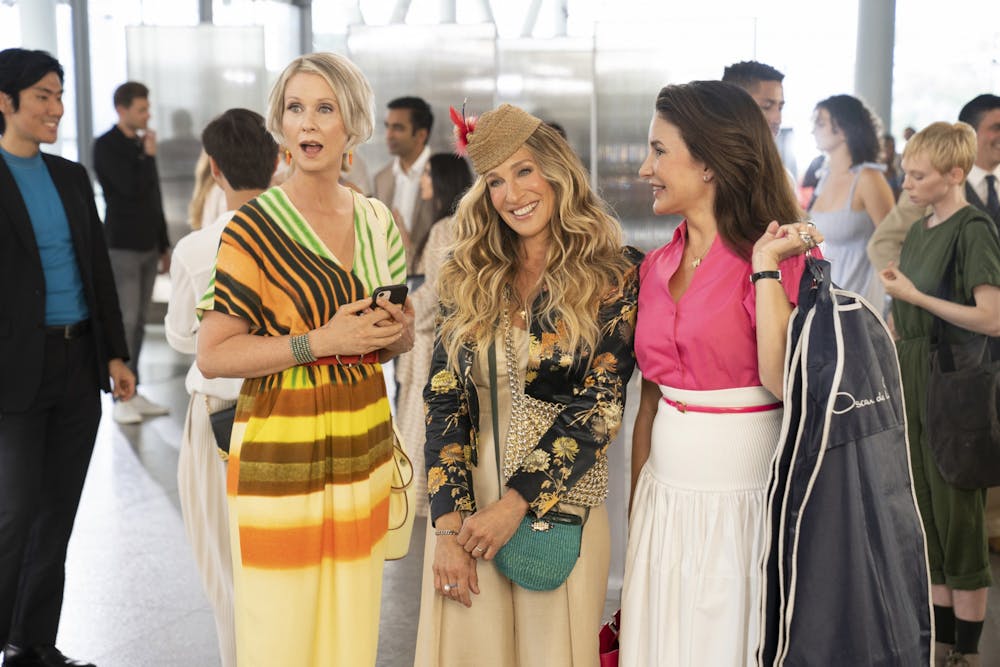In the words of Carrie Bradshaw herself: is hope a drug we need to go off of? Or is it keeping us alive?
Before the arrival of "And Just Like That", I’d say the latter. "Sex and the City" may take place before Generation Z’s time, but it’s lived on in glossy 24/7 streaming replay thanks to HBO Max. So, it became the first show I binge (re)watched in quarantine.
Despite elements that didn’t age well (e.g. lack of meaningful diversity, pagers and wearing capri pants unironically), there was something so blithe and deeply true to it that I began to understand why Gen X women clung to the series during its original run.
Female sexuality isn’t presented as a fetish or flaw — instead, it’s something deeply human that dictates women’s lives with spirit and tact. No wonder it’s getting a feminist reappraisal online.
Then came "And Just Like That", the "Sex and the City" reboot that we (mistakenly) pushed for. To save you the trouble: Carrie (Sarah Jessica Parker) is now widowed and living in what looks like the Metaverse. Samantha (Kim Cattrall) is estranged from the #girls and living in London. Charlotte (Kristin Davis) is still Charlotte, thank god. And then there’s Miranda (Cynthia Davis) who, despite being married, has fallen in love with podcast host and sleep paralysis demon, Che Diaz.
The show is not "Sex and the City" as much as a depressing simulacrum of one.
Things looked bleak for the state of sex on screen, but then there came a light in the dark: "The Sex Lives of College Girls", another HBO Original that premiered in late 2021, following the lives of four freshmen at a fictional Vermont college.
The girls, thankfully, aren’t replications of "Sex and the City"’s long-essayed archetypes. The series follows Bela (Amrit Kaur), a sex-positive comedy writer and fierce devotee of the college’s humor publication, The Catullan, desperate to get a spot on the writing staff; Whitney (Alyah Chanelle Scott), a soccer player and senator’s daughter; Leighton (Reneé Rapp), an icy sorority girl and closeted lesbian; and Kimberly (Pauline Chalamet — as in Timotheé’s sister), a naïve scholarship student who wears far too many jean jackets for a single TV show.
The high points of the show (occasionally funny dialogue, refreshing language surrounding sexuality on campus) flicker out in an instant, leaving the shows’ multitude of problems to come home to roost. Queer characters like Leighton — much like "And Just Like That" Miranda — are relegated to coming-out stories that feel more apropos to a Glee storyline from a decade ago. Whitney is entangled in an affair with her soccer coach, bloated with cliché instead of nuance; and the dialogue often errs on the side of How do you do, fellow kids? (For reference: Bela describes, out-loud, a date-night dress as “Fire emoji, head exploding emoji, tongue hanging out emoji.” I have never understood bullying until that moment.)




